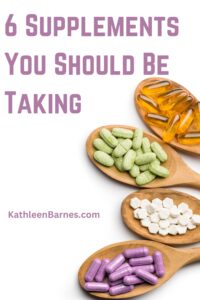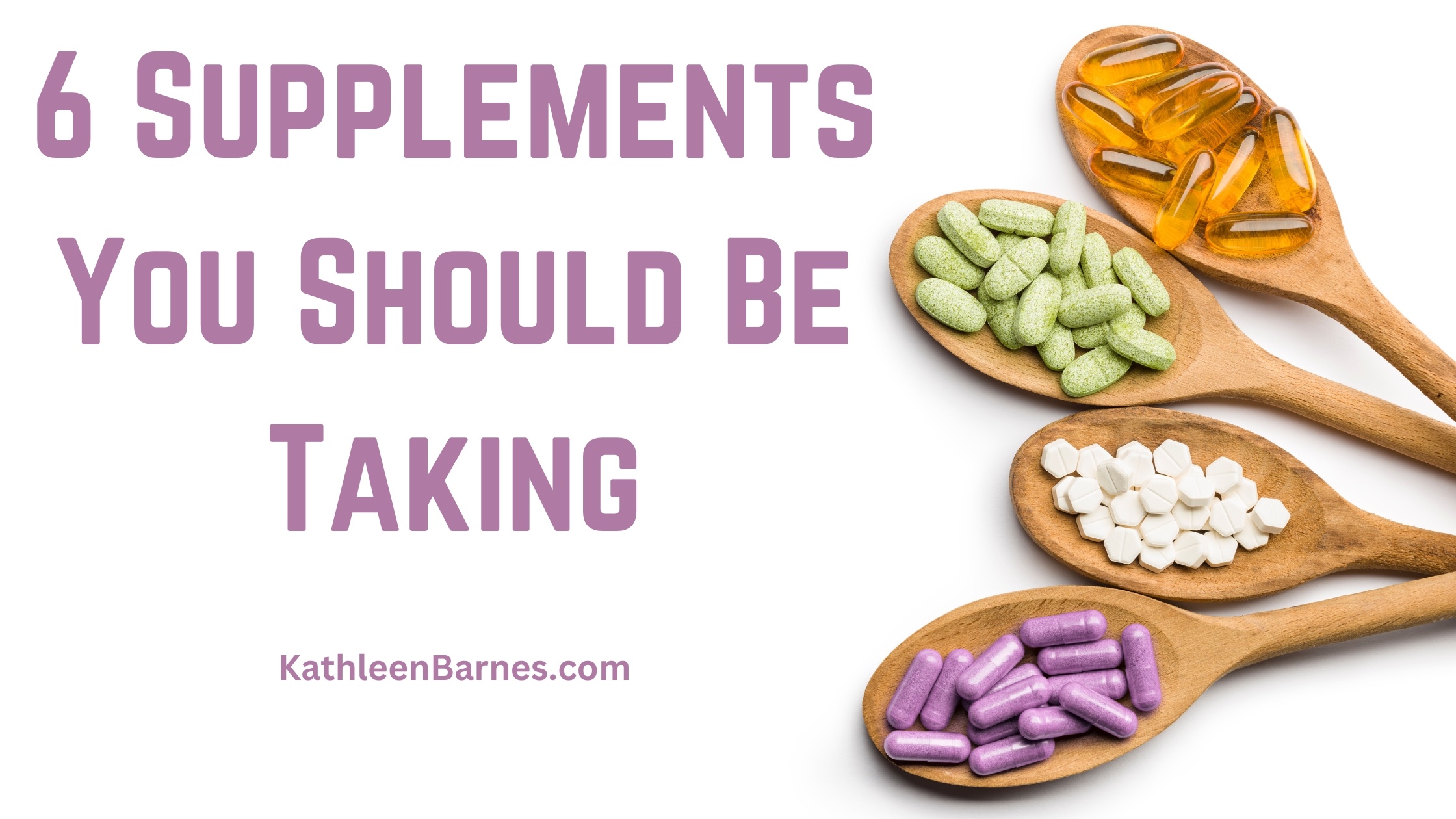I’m frequently asked what supplements I take and which ones I think everyone should every day.
Of course, there are physiological differences and many of us have health problems, but these are my recommendations for a person who is generally in good health and wants to stay that way:
- Multivitamin
- Fish oil
- Vitamin D
- Trace mineral supplement
- Coenzyme Q10
- Curcumin
I’ll flesh these out just a little bit:
Multivitamin
Way back in 1936, the U.S. Senate warned is that our soil was seriously nutrient depleted, based on research from several prestigious academic institutions. The situation certainly hasn’t improved in the intervening 78 years. That means it is extremely difficult, if not impossible, to get all the nutrients we need from food grown in nutrient depleted soil.
research from several prestigious academic institutions. The situation certainly hasn’t improved in the intervening 78 years. That means it is extremely difficult, if not impossible, to get all the nutrients we need from food grown in nutrient depleted soil.
Everyone should be taking a good quality multivitamin every day. No matter how good your diet is, you are simply not getting the nutrients you need for optimum health. Look for a whole food multivitamin made from organic fruits and vegetable concentrates. Synthetic vitamins (i.e beta carotene instead of the whole molecule vitamin A, ascorbic acid rather than the whole molecule vitamin C and tocopherols instead of the whole vitamin E molecule) are cheap and worthless. They may even be harmful.
Price isn’t always a good benchmark for supplements, but if you’re only paying $10 for a month’s supply at your local drug store, you’re probably wasting your money.
Fish Oil
This is probably the most important supplement you can take for your brain, heart and joint health, not to speak of blood sugar metabolism. I’ve often said if I could only take one supplement, it would be fish oil, hands down. You get the nutritional powerhouse Omega-3 fatty acids for fatty fish: salmon, tuna, mackerel and halibut.
With so many environmental toxins in the flesh of these fish combined with the prevalence on the markets of farmed fish that are raised in toxic soups, I prefer a high quality fish oil from a reputable manufacturer that I know has been filtered to remove toxins.
Vitamin D
Almost all of us are deficient in vitamin D, especially in the winter months. A growing body of research shows that optimal vitamin D levels can:
• Prevent at least 16 kinds of cancer
• Protect your heart and lower blood pressure
• Keep blood sugars steady and prevent diabetes
• Alleviate depression
• Prevent obesity
• Keep bones and joints strong
• Prevent kidney disease
• Improve digestive health
• Relieve menopausal symptoms
• Prevent autoimmune diseases
• Lengthen your life span
We all need vitamin D and lots of it, much more than most of us get. Experts recommend 2,000 IU or more of a good quality vitamin D3 supplement a day in the winter and the same in the summer if you don’t get 20 minutes of unprotected sun exposure to your face, arms, back and legs three times a week in summer. You won’t burn, I promise! Even my Celtic skin doesn’t burn in 20 minutes.
Trace Minerals
Your doctor has probably insistent that you need to take calcium for strong bones. Actually, nothing could be farther from the truth. Your bones are made of a dozen or more minerals and calcium is only one of them. Unbalancing those minerals can cause of cascade of health problems including hardening of the arteries, hypothyroidism, hypertension, diabetes, birth defects and more.
I won’t go into excruciating detail, but this is the subject of an entire book I wrote with Dr. Robert Thompson called The Calcium Lie: What Your Doctor Doesn’t Know Could Kill You.
Trace mineral supplements are definitely the way to go for strong bones and dozens more health benefits. I take a liquid one that tastes yucky, but I get it over with quickly.
Coenzyme Q10
Better known as CoQ10, improves energy production in the cells, especially those that optimize heart function. CoQ10 is essential to the survival of people who take statin drugs to lower cholesterol since they deplete the body’s natural stores. Sadly, most doctors don’t know this.
Many studies have shown CoQ10’s abilities to slow the ravages of aging, reduce cholesterol, prevent obesity, optimize blood sugar levels, prevent macular degeneration and much more.
Most experts recommend 1 mg. of CoQ10 per pound of body weight per day, so if you weigh 150 pounds, you would need 150 mg.
Curcumin
I think of curcumin almost as a multi-vitamin because it has so many health benefits. Botanically known as Curcuma longa, the turmeric rhizome is a member of the polyphenol-rich ginger family.
You might be understandably skeptical when you hear that this humble Indian spice can prevent, treat and cure a wide variety of serious diseases. These include everything from heart attacks to a dozen types of cancer, the pain of all types of arthritis and even so-called “incurable” diseases like diabetes and Alzheimer’s.
Curcumin also soothes depression and the agony of a variety of digestive disorders, including Crohn’s disease, inflammatory bowel disease and irritable bowel syndrome.
There is often confusion between curcumin and turmeric. Let me say it simply: Turmeric is a spice that gives wonderful flavor to Indian dishes. Curcumin is the medicinal component of turmeric. Look for a product containing bioavailable BCM-95 curcumin and take 400 mg a day, more with the advice of your healthcare professional if you have any of these diseases.
There are lots more vitamins we all need, but these are the rock bottom basics.







